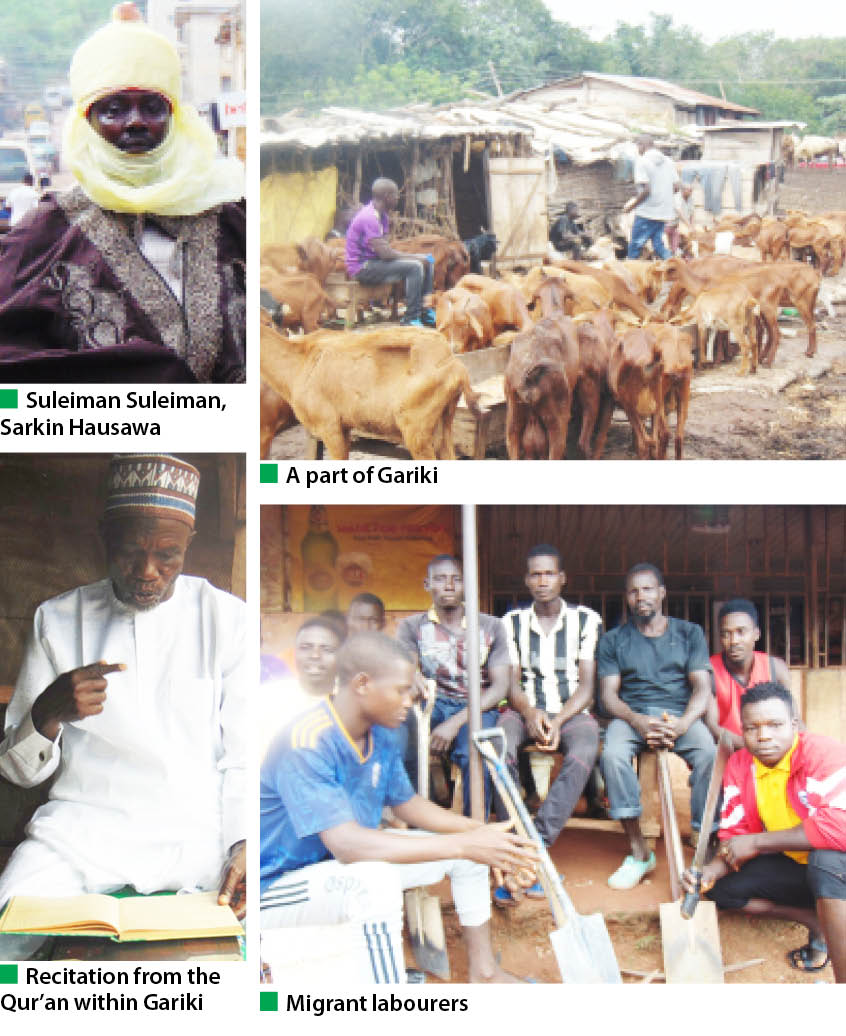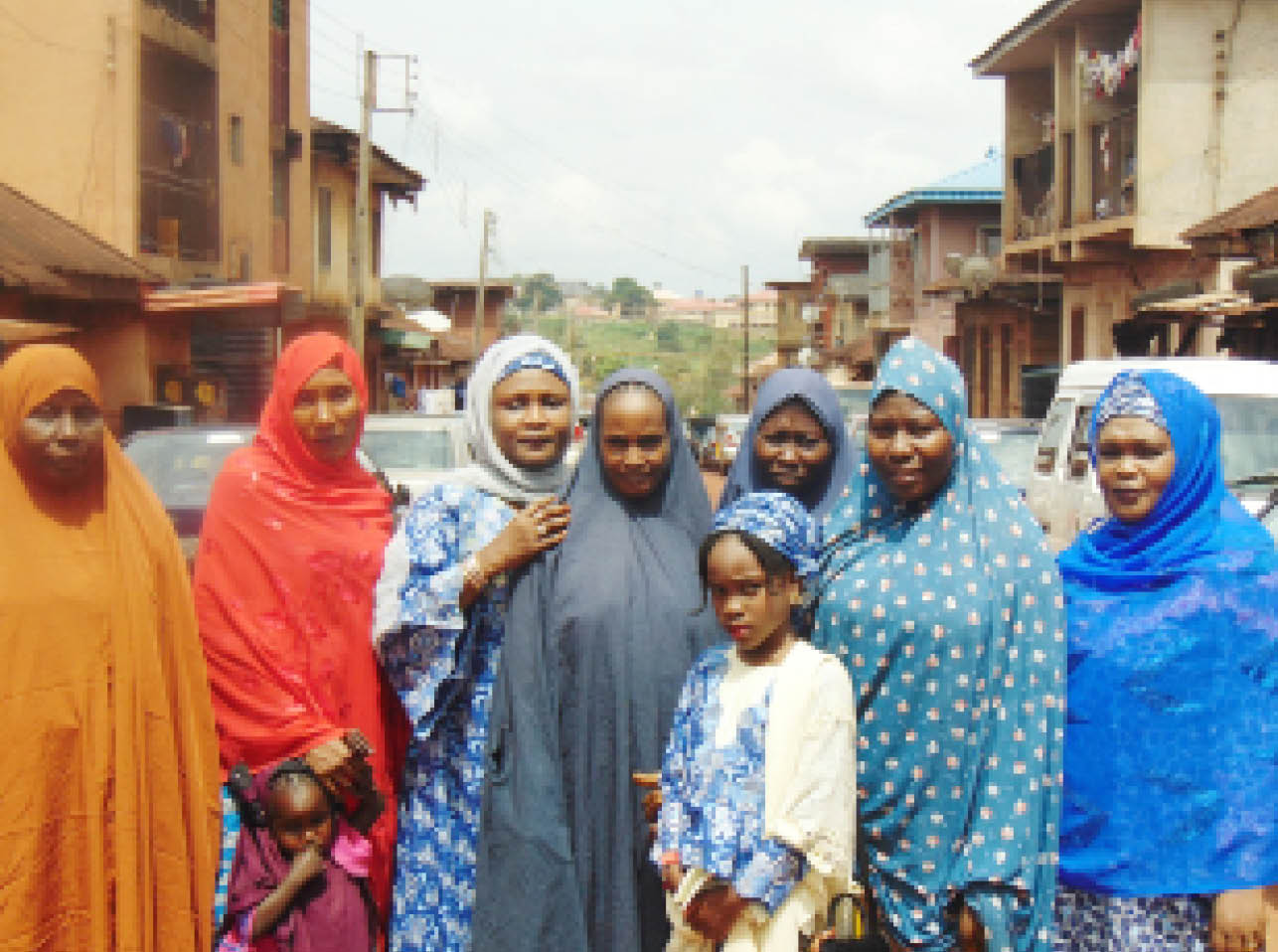In 1906, news broke that a railway line was being constructed from Kano heading southwards. People came out of the remote villages and travelled up to Kano to see what was happening. Suleiman Sale, a teenage Hausa boy was among those who flocked to the city and played a role in laying the tracks requiring many hours of work every day. There were many like him who laboured on the expanding line, which began to cut through territories, forests, valleys and plains. This was something new and many turned up to be part of the activity. There were hundreds of workers and an economy sprang up as the work progressed.
Suleiman Sale’s decision has led to the emergence of what today appears to be a vibrant Hausa community in Enugu State.
Fertile land
Kano had a vast fertile land and produced abundance of crops at every harvest. It was necessary to create a system that would be used to convey farm produce and other valuables to the coast for onward shipment to Europe.
The colonial government, therefore, planned a railway line spanning North and South, sections of which branched off the main line to access adjoining communities, but remained connected to it. Using the technology of the period, the tracks began to inch close to the South, but it was hard work.
Consequences of corruption too much to be ignored – Kole Shettima
Kano: Almajirai lament harsh weather as harmattan bites harder
A google search indicates that the rail line referred to here may have been that of Kano to Port Harcourt, which came into use in 1914. In other words, the line may have been under construction as at 1906 when Sale was said to have joined the group laying the railway lines from Kano.
Coal Camp
Sale eventually reached Enugu, settled and married there and is the grandfather of Suleiman Haruna Sule, the current Sarkin Hausawa of Enugu. He was a pioneer in cattle trade in the area, and through him and the activities of a number of enterprising Hausa traders, such as the famous Baba Girei and Baba Enugu, the huge trade in cattle between North and South began to blossom.
He lived in the Coal Camp area of Enugu, originally a dwelling for miners who worked in coal mines and owned many houses there. Today, Sarki Sule lives in Coal Camp too, continuing the family’s historical and social connection with the camp.
The atmosphere was festive when Sarki returned to his house during my visit. A few weeks earlier, he had been installed as the new leader of the Hausa community, and his neighbours could not hide their joy when he made a grand entry in his traditional gown and turban. They were ecstatic.
My earlier investigations in Enugu also revealed that the coal mines also played a role in attracting the Hausa to the city. Some actually worked in the mines. There are traders who convey tomatoes, onions, dried fish and other produce to Enugu from the North. They too have played a role in growing the Hausa community in the city, as well as the migrant labourers.

Baba Enugu
It is impossible to do a report on the Hausa in Enugu without looking at the life of Baba Enugu, son of Baba Girei, who was also popular in the area. Baba Enugu was a nickname given to him by his friends, who admired him greatly.
Speaking during an earlier interview, Nura Enugu, his son said, “My father was given that name by his friends. He was born and brought up here in Enugu, and people soon forgot his real name. His actual name was Adamu Baba Girei. He was a businessman and handled many contracts around here. He supplied items to the prison and was a big cow trader. He had three wives and 12 children. He was the first man to introduce a town service in Enugu. Every Thursday and Friday, everyone could enter his buses free of charge. Every Friday he would slaughter cows at his house, along Ogui Road and entertain the entire Enugu community.”
The life of Baba Enugu is the story of one individual whose business efforts and stellar example had impact on Enugu community, endearing his family to many.
Gariki
New Gariki is the part of Enugu where Sarkin Hausawa has an office. This is Enugu’s main cattle market and abattoir. It is a very busy place with trailers laden with cattle arriving from time to time from distant markets in the North. It also has an extensive field where the cattle wait for buyers. Those who feed and clean the cattle or help to remove them from trailers or clean the trailers are always busy moving up and down.
There are numerous stalls and the large population of Hausa traders or young men connected to the cattle trade in one way or another. Outside, to the right of the main entrance are numerous migrant workers known as Yan Cirani, who travel down to the South to earn some money once dry season sets in up North. They sit in a group with a variety of working tools around them.
‘Igwe’
Deep within the network of shops is Sarki’s office, and many persons, both Hausa and non-Hausa, stop to greet him, saying respectfully, ‘Igwe’, ‘Igwe’, the Igbo word for king. He too responds in Igbo.
Nearby is a mosque and further down are mini restaurants where women are either preparing meals or are actually serving customers. Gariki and its population inevitably play a role in preserving Hausa culture. There are mobile barbers, tea sellers or Mai Shayi, hawkers of all sorts of items, and tailors providing a much-needed service in the market. Very soon, we came across an Islamic school in session.
1,000 cows
Baba Ali arrived in Enugu at the end of the civil war. The chairman of the cattle market said, “I got here from Adamawa in 1970. At that time, the first abattoir was at Artisan. We packed from there to Coal Camp, and from there, we moved to Awkunanu, the other Gariki. From there, we came here. Urban expansion caught up with us. That is why we had to move.”
On the impact changing times he said, “You cannot compare that time and now. At that time, not only did trailers bring cows, trains also brought animals. People also trekked from Cameroon with cows, all the way to Enugu. From Adamawa, they crossed to Benue, as well as Nkalagu before coming here. That was the route they used. It took one month or, at the earliest, 40 days to trek from Cameroon to Enugu with the cows.”
He said there was a time in the 1970s when up to 1,000 cows were slaughtered within the neighbourhood of Gariki in one day, implying but that things have changed.
‘How we left for Otukpo’
Shuaibu Musa was born in Enugu in 1951 and belongs to the family of Sarkin Hausawa. He spoke on the career of his famous grandfather and the growth of the Hausa community with people who came from Chad Cameroon, Maiduguri, Yobe and Plateau states.
On the civil war he said, “The civil war affected cattle trade. It also affected the growth of the Hausa community. At that time, all of us moved to Otukpo in Benue State, being the border between the North and South East.
Effects of sit-at-home order
Significant Hausa population in the state can be found at Ugwoba, 9th Mile, New Gariki, New Artisan Market, Owerri road, Akwata market, Coal Camp, Abakpa, Obollo Afor, Emene and Agbani. Suleiman Haruna Suleiman is the leader of the Hausa community in Enugu, popularly referred to as Sarkin Hausawa.
Commenting on the sit-at-home directive by the Indigenous People of Biafra (IPOB) and its impact on his community he said, “We cannot do anything about the situation. The Hausa community here is living in a little bit of fear because of the sit-at-home order, which takes effect on Mondays. And Monday is the day we usually start our trade. If you come to the cattle market on Mondays, nobody comes around. Even the Hausas living in the town come here for security or to be with their brothers. If you are in a place that is not your land, you have to abide by their laws.”

‘We lose millions of naira’
Shedding light on the financial losses occasioned by the sit-at-home order, Sarki Suleiman said, “We don’t kill cows anymore in the market on Mondays. On ordinary days we kill more than 20. This is something in the range of N20million, if we are to provide a figure. Thus, N20m is lost every Monday owing to the order.”
Suleiman added that his people were not too keen on education because many believe that the reason for coming to Enugu is trade. They also don’t wish to buy land and build houses because they believe they will be in the city for a short time.
He, however, said, “We are trying to educate them by telling them that we have been here since 1906. My grandfather came to Enugu with the railway people. He was a labourer from Kano. That’s what my father told me. We settled here in Coal Camp because it was the oldest place in Enugu at that time. My father was born here.”
He said although some Hausa people were born in Enugu, they had started returning to the North. He added, “Two weeks ago, I went to Kano for a wedding. A cousin got married and at the ceremony there were so many Hausa people speaking Igbo because they were born in Enugu and later resettled in Kaduna.”
Migrant labourers
On Yan Cirani, Sarki Suleiman said, “These are those who leave their communities to go to another town, seeking jobs to make some earnings. This is done in the dry season up North. When they come here to find jobs they make more money than they would make in the North. Thus, some of them decide to settle here permanently and even marry.
‘All the Hausa here in the East are products of Yan Cirani. Remember that my grandfather came here laying the railway tracks from Kano. That is a form of Yan Cirani. Our origin can be traced to the culture of Yan Cirani.’
Baba Wakili said there were more than 300 migrant labourers at Gariki who hail from Bauchi, Jigawa, Adamawa, Yobe, Gombe, Kano, Zamfara, Katsina and Kaduna.
Wakili, chairman of the group of migrant labourers at Gariki said, “We go back in May when the rains have started in the nNrth. We plant crops, do the harvest and return to the East in January.”
Effects of insecurity of cattle trade
Chuka Ogbonnaya, who has been selling cows at Gariki for over 20 years, spoke of his many trips to distant parts of the North, such as Maiduguri and Bauchi, from where he buys cows and returns to Enugu.
“Before the advent of Boko Haram I used to go to many places in the North, such as Bauchi, Mubi, Maiduguri, Jigawa and Taraba to buy cows. I also used to go to Damboa, but I can’t go there now because of insecurity. There are many Igbo people involved in the cattle trade,” he said.
Abdullahi Garba, the secretary of the Fish dealers Association, Akwata Market also said, “There are more than 300 fish dealers in this market. I was born here and I speak Igbo, but I am Hausa from Dawakin Kudu in Kano. There are many Hausa and Kanuri people here. I don’t know the actual number but we are many.”
Nasiru Shehu, the chairman of Hausa onion dealers in another part of the market explained that onions were usually brought in from Kaduna and Sokoto states, and that a full trailer of the commodity contained 250 bags. On storage facilities, he said, “You can store onions in the North, but because of the wet condition of the South you cannot do that it. The rainy season is really not good for onions. When rain falls upon the commodity it quickly goes bad.”
Trips to police station
Sariki Suleiman also spoke about the problems young Hausa boys face while travelling to Enugu from the North, saying, “I have been going to police stations to bail my people because policemen will arrest somebody because of the little knife he tied around his waist. And they are always with knives because of the animals they move around with in the bush. If the animals die, they will slaughter it because we don’t eat anything that is dead. That’s why they move about with knives. Sometimes, I go to police stations many times in a month. On some occasions, the boys are taken to court without our knowledge.’
They bought lands, built houses
Speaking on the absence of specific Hausa quarters in Enugu as obtains in other neighbouring states in the South East, Sarki Suleiman said, “Maybe our past Hausa chiefs were not talking about this, or it is because we feel relaxed. Perhaps the first Hausa people that came to Enugu were hard working. They bought lands and built houses all over. Again, at that time it would be hard to tell them to go to a particular settlement.
‘I speak several Igbo dialects’
Mohammed Salisu, who sells goats at New Gariki, also said the sit-at- home order had affected his business.
“It affects the trade negatively. Previously, Mondays were the most important, but now, the market begins on Tuesdays.
“Our people look at the sit-at-home as a way of encouraging people to go back to the North. But we believe that whatever happens, we will suffer and survive with the indigenous people. My condition here is similar to that of the indigenous people due to the fact that I was born here. I speak different Igbo dialects in Enugu, as well as the Abakaliki dialect,” Salisu, a graduate of History and International Studies said, adding that he hopes to get enough money to enlarge his goat business.

 Join Daily Trust WhatsApp Community For Quick Access To News and Happenings Around You.
Join Daily Trust WhatsApp Community For Quick Access To News and Happenings Around You.


